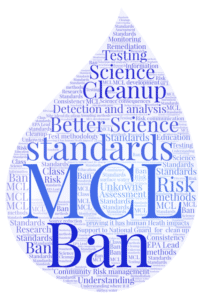Cooperative Federalism & PFAS Are Top Issues at ECOS Spring Meeting
The Environmental Council of the States (ECOS), the national nonprofit, nonpartisan association of state and territorial environmental commissioners, hosted their annual spring meeting in Washington, D.C. earlier this week. Two of the top issues discussed include cooperative federalism and addressing per- and polyfluoroalkyl substances (PFAS).

Application of cooperative federalism principles to U.S. EPA oversight of programs implemented by authorized or delegated states has primarily focused on work in the Title V and NPDES permit programs. EPA and states gave updates on the ongoing work to increase the efficiency and clarity of the state-EPA relationship in those program areas. EPA and the ECOS workgroup are exploring expanding efforts nationwide, as they have been focused in particular states and EPA regions, as well as expanding the principles into new programs. The states also had a chance to hear from Susan Bodine, Assistant Administrator of EPA’s Office of Enforcement & Compliance Assurance. The discussion primarily centered on the proposed National Compliance Initiatives (NCI), including a new initiative for drinking water, and the shift to illustrating compliance outcomes rather than output, particularly in situations where much of the work done is through informal actions. Bodine and her staff will be visiting 6 state water programs as a part of their research and planning for the proposed drinking water NCI.
Likely no surprise, PFAS was a hot topic at the meeting, as the pervasiveness of PFAS in the environment has emerged as a top challenge for state and federal environmental agencies. Attendees heard from Jennifer McLain, Acting Director of EPA’s Office of Groundwater and Drinking Water, Maureen Sullivan, Deputy Assistant Secretary of Defense for Environment at the Department of Defense, and senior leaders from Massachusetts’ and New Jersey’s Departments of Environmental Protection on recent actions from their respective agencies to address PFAS. In this conversation, McLain committed the Agency to propose a hazardous substance designation under CERCLA for PFOA and PFOS by the end of the year. ECOS staff also collected state response to the question, “In one or two words, what is the number one challenge facing your state or organization?” and organized responses into a word cloud (pictured). The more times a phrase was submitted, the larger the phrase is. So, the word cloud shows a strong desire for drinking water standards (SDWA MCL[s]) and for keeping PFAS out of the environment (Ban), using any and all environmental statutes.

